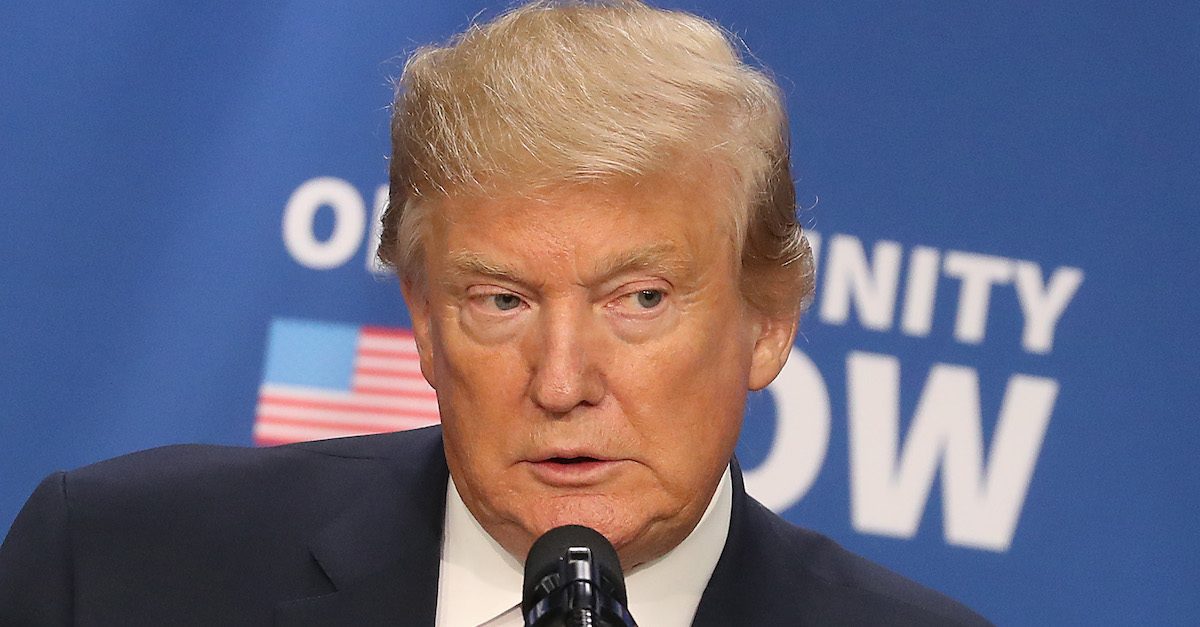
Following his tepidly received Rose Garden speech outlining his Administration’s plan to overhaul the nation’s immigration system, reports surfaced that the President Donald Trump and his advisors were “looking into” the Insurrection Act of 1807.
When asked directly about the Insurrection Act during an appearance on Fox News Friday, White House deputy press secretary Hogan Gidley would not rule out any possibilities.
“Look, the president has been very clear. He’s going to do everything within his legal authority to protect the American people,” Gidley said. Pressed for a more definitive answer, he responded that “there are lots of tools at [the President’s] disposal…we haven’t used all of them.”
Just hours before Gidley’s non-denial hit airwaves, The Daily Caller reported that multiple senior administration officials confirmed that the President would be invoking the Insurrection Act to remove illegal immigrants from the country. “
“We’re doing the Insurrection Act,” one senior official reportedly stated.
Last invoked during the 1992 L.A. riots, the act essentially empowers the president to authorize the use of military force in a law enforcement capacity on domestic soil.
When Trump first sent troops to the southern border in October of last year, the move provoked widespread condemnation from experts in military law and a plethora of news articles focusing on the Posse Comitatus Act of 1878; experts explained (correctly) that the statute explicitly prohibited using the military to enforce domestic law.
However, according to Prof. Stephen Vladeck of the University of Texas School of Law, the Insurrection Act has always been understood “as the principle exception to that general rule.”
As it stands today, the law reads:
Whenever the President considers that unlawful obstructions, combinations, or assemblages, or rebellion against the authority of the United States, make it impracticable to enforce the laws of the United States in any State by the ordinary course of judicial proceedings, he may call into Federal service such of the militia of any State, and use such of the armed forces, as he considers necessary to enforce those laws or to suppress the rebellion.
In his latest article for The Atlantic, Vladeck explains that the Insurrection Act was originally conceived as a congressionally controlled power that was gradually over-delegated and eventually usurped by the executive. Until now, political and historical norms have been the main constraint on presidential abuses of power granted by the act.
It’s inevitable that any invocation of the act will be met by a stampede of lawsuits challenging its validity in enforcing immigration law. However, according to Vladeck, invoking the act would be both “the most clearly lawful – and most historically indefensible” example of Trump defying norms to empower the executive branch.
If Trump were to hypothetically call upon the military absent any reasonably sufficient basis for invoking the act, any checks on his power would likely be ineffective until after the fact. Even then, if he were found to have violated the Posse Comitatus Act (by unlawfully invoking the Insurrection Clause), it would be a violation of federal criminal law, meaning it would be left in the hands of the current attorney general and prosecutors at the Department of Justice.
Image via Mark Wilson/Getty Images